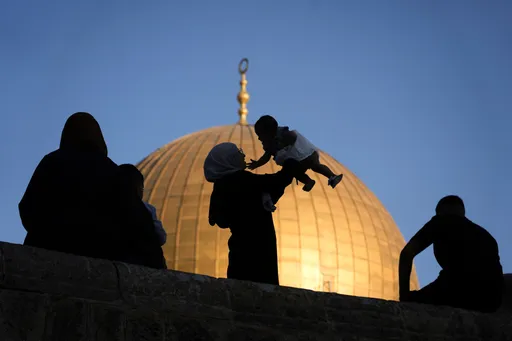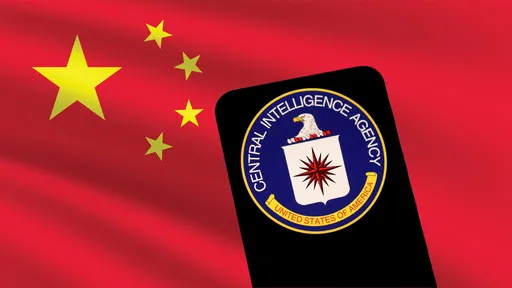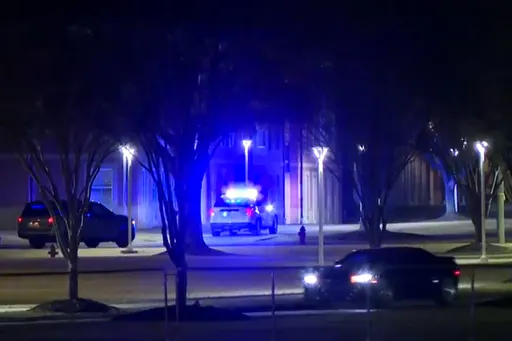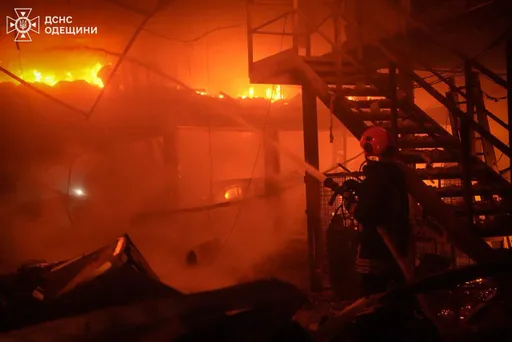Seven months into Israel’s war on Gaza, the International Criminal Court (ICC) issued arrest warrants for Israeli Prime Minister Benjamin Netanyahu and Defence Minister Yoav Gallant on the grounds of committing war crimes against Palestinians.
But along with the two Israeli war hawks, the ICC also indicted three Hamas leaders – the group’s Gaza chief Yahya Sinwar, the commander of its military wing Qassam Brigades, Mohammed Deif, and head of its political bureau Ismail Haniyeh.
ICC prosecutor Karim Khan said that he had reasonable grounds to believe that five men "bear criminal responsibility" for alleged war crimes and crimes against humanity in Israel and Gaza.
If issued by the ICC chamber, the warrant, which Khan described in an interview as "the fidelity to justice," could mark the beginning of prosecuting more individuals involved in the egregious crimes witnessed in Gaza for months.
However, it might not be enough to restore the public's faith in international law, “as it presents a mixed picture of manipulative politics intertwined with the application of law,” says Richard Falk, professor of International Law and Practice, Emeritus at Princeton University.
Unbalanced assessment, lacking evidence
What has been revealed to the public is not yet the full text of the application but a statement from Prosecutor Khan’s office, which provides a concise summary of what aspects of Israel’s ongoing war on Gaza will be examined as crimes against humanity and what aspects will be simply ignored.
It highlights the hostages taken by Hamas and Israelis killed in the October attack while neglecting to mention the loss of tens of thousands of Palestinian lives at the hands of Israeli forces. According to the latest estimate, Israel has killed at least 40,000 Palestinians, most of whom are women and children.
For regional observers, this portrayal seeks to draw a parallel between Hamas and the Israeli state, a parallel that is inherently inaccurate and biassed since Israel is considered to be one of the strongest military powers in the Middle East, while Hamas continues to be a poorly-equipped resistance group that operates in Gaza, a place subjected to one of the worst economic blockades of modern history for decades.
This attempt to create an impression of equivalence between the sides is what makes the application “an unbalanced assessment of the relevant wrongdoing of the actors,” professor Falk tells TRT World.
By not providing a proper view of the crimes committed by Israel before October 7, the prosecutor falls into the trap—intentionally or unintentionally—of what the media has been trying to portray: that the historical process leading up to the recent bloody war is somehow unnecessary, or at least irrelevant.
It excludes “the context of oppression” and the fact that Gaza has been subject to the collective punishment via the harsh blockade for 17 years, Falk says.
The focus of the application not only omits crucial context but also raises questions about the accuracy of the claims regarding what happened on October 7.
The fact that there has never been an official investigation into the events of that day to ascertain whether the criminal allegations and atrocities were genuinely perpetrated or if they were part of Israel's state propaganda, leads to deficiencies in the application, the emeritus Princeton professor adds.
“Convincing evidence is lacking, and journalistic accounts contribute to significant scepticism regarding the accuracy of the characterization or description of October 7.”
It is particularly concerning that Karim Khan’s office chose to include rape allegations concerning Israeli hostages by Hamas fighters, as these claims, reported by Israeli media outlets, have been met with global skepticism and debunked multiple times by accounts from the ground.
As the statement goes, the office indicates that “there are reasonable grounds to believe that hostages taken from Israel have been kept in inhumane conditions, and that some have been subject to sexual violence, including rape, while being held in captivity.”
The prosecutor will now assemble a panel of international law experts to help review the evidence and legal analysis regarding the application.
No mention of genocide
The first warrant for the arrest of Gaza war criminals does not base its filings on the crime of genocide, which various human rights organisations and experts, including the UN, believe has been committed in the enclave.
Instead, it focuses on other severe violations of international law, such as starvation or causing great suffering and injury.
Falk says this is a very surprising omission, adding that the most severe of all crimes is not the specific ones listed by the prosecutor’s office, but the one that it fails to mention.
“It is deficient in important respects, perhaps most notably by avoiding what is clear even to non-legally trained people around the world: that this is genocide.”
Calling this as a “major deficiency,” Falk believes that the ignorant portrayal of what has been going on and not even attempting to explain why they didn't include the common perception of genocide can be regarded as distortion of reality, and it is more dangerous than portraying Hamas as more criminal than Israel.
The ICC has jurisdiction over genocide under Article 6 of its founding Rome Statute, reiterating terms from the 1948 Convention on the Prevention and Punishment of the Crime of Genocide.
Is there still hope?
Though not entirely fair or just, the inaugural effort to hold accountable the perpetrators of a contemporary genocide is anticipated to have repercussions beyond the legal realm.
Labelling Israeli ministers as war criminals could undermine the legitimacy claims of the current Israeli administration. So ICC’s decision still remains a long-awaited and promising development for some.
“I would have wished this would have been much earlier, but it's not too late,” says Neve Gordon, professor of human rights law at Queen Mary University of London.
“We have been wanting these prosecutors to seek arrest warrants for years, but to come and say that it's too late today would be misguided,” the Israeli academic tells TRT World.
Karim Khan and the ICC face furious threats from Israeli and American officials, with Netanyahu calling the ICC "a pariah institution" for pursuing warrants.
“It's clear from the US senators advocating for sanctions against the ICC, Karim Khan, and his family, that this represents a significant milestone,” Gordon says.
“That means that Khan has touched the nerve.”
Should the arrest warrants be issued, the 124 states parties to the Rome Statute will be required to detain the suspects and hand them over to the Court if they enter their territories, which could result in travel bans for Netanyahu and his defence minister.
Furthermore, if a new Israeli government opts to cooperate with the ICC as a non-party state, it could potentially lead to their imprisonment in their own country.
The leaders of Hamas likely worry less about these warrants compared to the constant threat of death they receive via Israel's targeted actions, with limited safe locations due to being on terror lists, according to Richard Falk.
What experts agree on is that whether these warrants are issued or not, the discussions surrounding them will inevitably influence public opinion, potentially leading to a shift over generations, if not shielding Gaza's two million vulnerable population from the ongoing onslaught and humanitarian crisis they face.
“Success, from my perspective, doesn't hinge on legal victories here. I hold minimal faith in the law as a means of emancipation, be it for Palestinians or any other group,” Gordon says.
“To me, success lies predominantly in shaping public opinion. It's about influencing hearts and minds, laying another brick in the foundation of change.”























